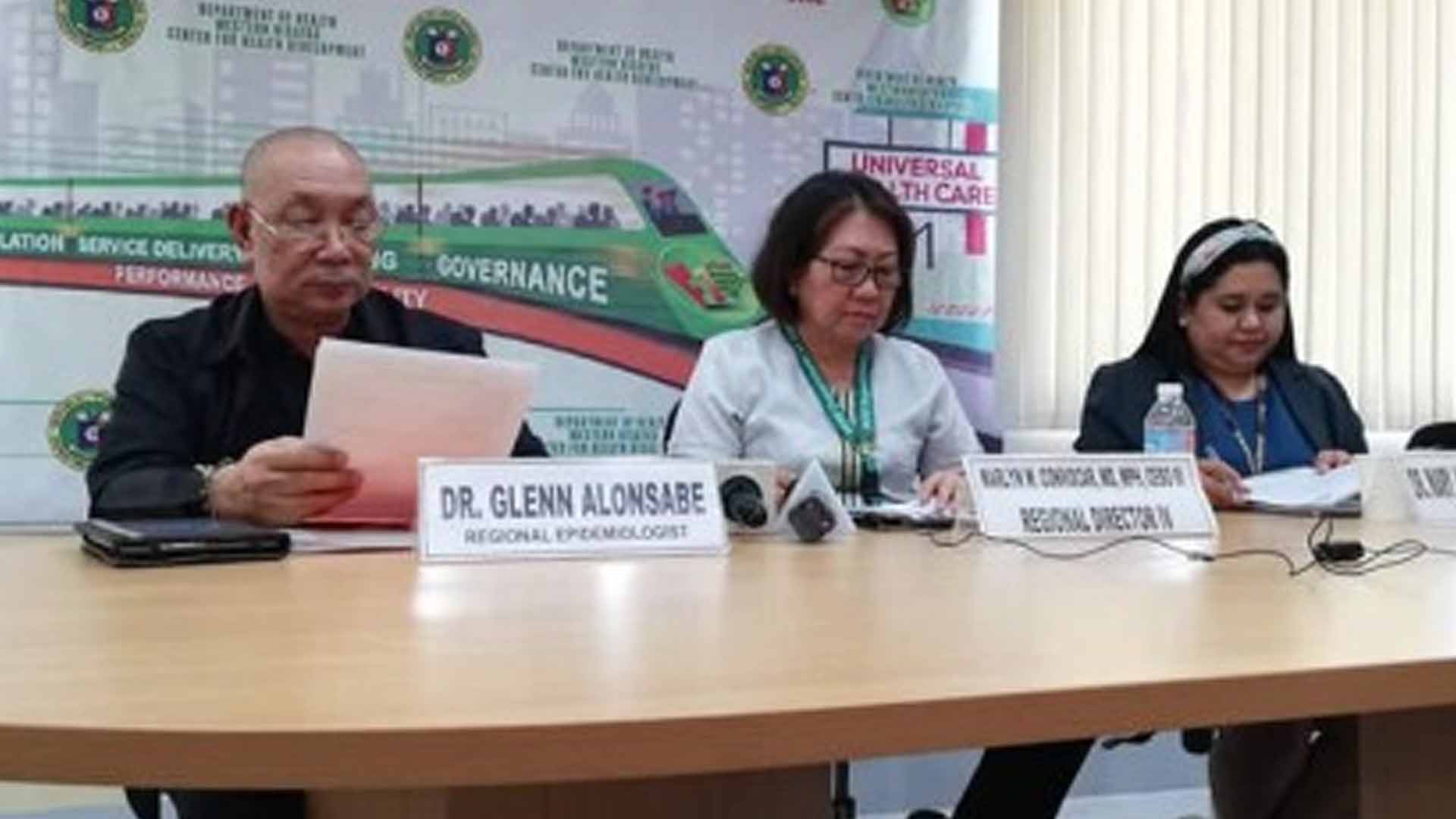Western Visayas is on course in terms of implementing measures in response to the coronavirus disease 2019 (Covid-19).
In a press conference on Monday, Dr. Marlyn Convocar, regional director of the Department of Health-Center for Health Development in Western Visayas (DOH-CHD 6), said that health personnel starting from the organization of barangay health emergency response teams (BHERTs), are vigilantly monitoring the health condition of residents in their respective areas.
Currently, 97 percent of barangays in the region have organized BHERTs, thus any arrival from abroad, particularly from countries with Covid-19 cases, is monitored.
“Members of the BHERT are already informed what to do. Once they saw signs and symptoms, they immediately refer (the patients) to facilities,” she said in a press conference held at the DOH regional office on Monday.
Convocar added that personal protective equipment (PPEs) for health personnel have been prepositioned, personnel are trained on how to put on the PPEs and adequate resources have put in place.
“The system of reporting is also in place. We are on track here in Region 6 and that would also explain why as of now we have good surveillance and we have no positive cases,” she added.
Meanwhile, with the DOH’s declaration of Code Red Sub Level 1 over Covid-19, the CHD in Western Visayas will intensify its tracking of severe acute respiratory infections (SARI) for further assessment.
Regional epidemiologist Dr. Glenn Alonsabe said that the SARI surveillance is not new because it has been going on since the time of the severe acute respiratory syndrome (SARS) scare.
He said that they will keep watch of patients admitted in Level II and Level III hospitals, especially those who need further management for respiratory problems.
Western Visayas has around 17 Level II and Level III hospitals that have the capability to provide isolation areas and intensive care, said Dr. Jane Juanico, head of the CHD-6 Infectious Disease Cluster.
“SARI cases are usually in these hospitals because they have the capacity to contain and provide adequate and proper management for severe cases,” Juanico said.
She added that these are mostly provincial hospitals from each of the region’s provinces, private hospitals and four DOH-managed hospitals. In case there is a surge in cases, they have the capacity to admit and manage patients under investigation (PUIs) and SARI.
Once the SARIs are tracked, swab samples will be taken from the patient for Covid-19 testing.
The health authorities, as precautionary measure, also urged the public to stop touching their face, especially their mouth, eyes and nose to reduce the risk of surface contamination. Routine cleaning of frequently touched surfaces such as tables, doorknobs, light switches, handles, toilets and faucets is also advised.
“We should make it a habit not to touch our face. Why? Because aside from the droplet infection, which is one of the modes of transmission of Covid-19, it was also found out that there could also be surface contamination,” Convocar said.
Currently, Western Visayas has no positive Covid-19 cases. Out of the 42 PUIs from January to March 9, there were 40 who have tested negative, one had other respiratory pathogens detected while the other one is still awaiting the result of the laboratory test that was taken on March 6. (PNA)








